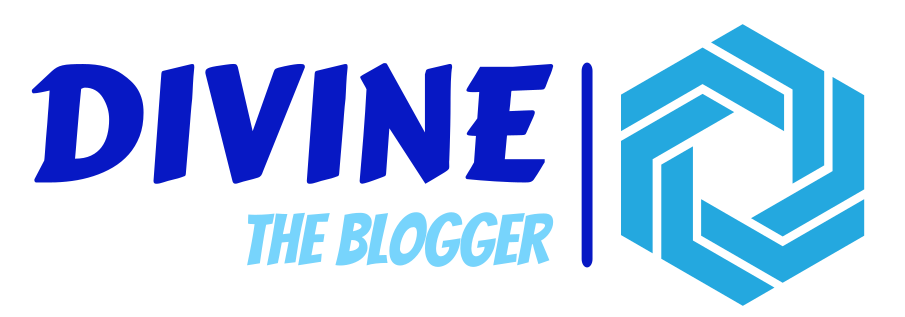What is Search Engine Optimization?
Search engine optimization, or SEO, is the process of improving your website’s visibility in search engines. This can be done through a number of different techniques that help you rank higher on search results pages (SERPs).
The goal of SEO is to make sure that people find your site when they’re looking for something specific. For example, if someone searches “best pizza restaurants in Chicago,” they should be able to find your restaurant at the top of their SERP results–not some other place where they have to click around before finding what they’re looking for!
How to Optimize Your Website for Search Engines
There are many ways to optimize your website for search engines. The first step is keyword research, which involves choosing the right keywords and phrases that people are searching for when they visit your site. You then create content around these topics and make sure that it’s optimized with those words in mind (more on this below).
Next comes content optimization: making sure that each page of your site has a title tag and meta description, as well as an H1 header tag (which should be descriptive of what that page is about). This helps Google understand what each individual page is about so it can return more relevant results when someone searches for those terms on Google or another search engine like Bing or Yahoo!
Another important aspect of SEO is page speed optimization; if users have trouble loading pages quickly enough because there’s too much code running in their browser at once, they’ll leave before seeing any actual content from you–and possibly never come back again! To combat this problem, try using tools like YSlow or PageSpeed Insights by Google Analytics’ Big G itself to see where improvements could be made with regard to load times per page; then work through them one by one until all pages reach an acceptable threshold level according to these tools’ recommendations.”
Measuring the Success of Your SEO Efforts
To measure the success of your SEO efforts, there are a few key metrics to keep an eye on.
Rankings: You can check rankings using tools like Moz and Ahrefs. These will show you where your site stands in relation to other sites in terms of search engine results pages (SERPs).
Traffic: It’s important to track how much traffic you’re getting from organic sources so that you know if it’s increasing or decreasing over time.
This will help determine whether or not people are finding what they need on your site when they search for specific keywords or phrases, which can help lead them down the path towards making purchases from you or signing up for services like email newsletters or white papers.
Backlinks: Backlinks refer to links that point back towards another website from another website–for example, if I link out from my blog post about SEO best practices by referencing an article written by someone else who has written about this topic before me (and happens to be published on their own blog), then those two pieces would have one backlink between them because one link points toward another page while still staying within the same domain name structure (I’m referring here specifically
Common SEO Mistakes to Avoid
Using too many keywords.
This is a common mistake that people make when they’re first starting out with SEO. They want to use as many keywords as possible, which can result in keyword stuffing and overuse of certain phrases.
This is bad for two reasons: it makes your site look spammy, and it doesn’t help you rank for anything! You should only include one or two relevant keywords per page (and even then, only if they’re used naturally).
Creating low-quality content.
Another big mistake is creating content that isn’t helpful or interesting enough for users to read–or even worse, writing something just because you think it will get more traffic than an article about something else would have gotten otherwise!
If someone lands on your site because they were searching “how do I tie my shoes?” then maybe they don’t care how long it takes them; maybe all they want is an answer right away without having to click around too much first…but if someone lands on yours specifically looking for information about tying shoelaces?
Then give them exactly what they want: detailed instructions with clear photos showing each step along the way (and maybe even links back into other parts of our website where we talk more generally about different types of shoe lacing patterns).
Benefits of SEO for Your Business
Increased visibility
SEO can help you get more traffic, which will increase your brand’s visibility. This is especially important if you’re just starting out, or if you have a small budget for marketing and advertising. As long as your website gets enough visitors, it should start showing up higher in search results–and that means more people will see it!
Improved brand recognition
If people are searching for something related to what your business offers, they might find their way onto one of the pages on your site. If they like what they see (and who wouldn’t?), they’ll likely remember both the product or service itself and also its name: yours! This can lead directly to increased sales because these customers already know what they want when they come back later to look again online; all that’s left is clicking “Buy Now.”
SEO Best Practices
- Create quality content
- Optimize page and meta descriptions
- Use heading tags
Search Engine Algorithms
Search engine algorithms are what determines the order of search results. They’re based on a variety of factors, including the popularity and relevance of your site, as well as how often you update it.
Google’s algorithm is one of the most important factors in determining where your website appears in search results. Bing also uses its own algorithm, which looks at things like content quality and user experience when deciding how to rank websites on its SERPs (search engine result pages).
Other search engines such as Yahoo!, DuckDuckGo or Ask Jeeves also have their own versions of this technology–you’ll want to make sure that yours is optimized for each one!
Types of SEO
On-page SEO: This is the process of optimizing your website to help it rank higher in search engines. It involves making sure that your site’s content is relevant, unique, and well-organized.
Off-page SEO: This refers to all of the things you can do outside of your own website that will increase its visibility in search engines and help it rank higher than other websites on similar topics.
For example, if you publish an article about how to grow tomatoes on Medium (a social media platform), then share it on Facebook and Twitter, those are off-site activities because they don’t involve changing anything directly on your blog post itself (which would be considered “on-site”).
Tools and Resources for SEO
You can use Google Search Console to see how your site is doing in search results. It gives you a complete picture of what people are searching for and where your site appears in those searches.
Google Analytics is another tool that provides valuable information about how people are finding your website, what they’re doing on it and whether or not they’re converting into customers (or leads).
There are also many keyword research tools available that will help you find out what keywords people are using when they search for products or services like yours. These tools will also show you which ones have the highest volume so that you know which ones are worth targeting first when creating content or optimizing existing content with SEO best practices in mind!
SEO and the Future of Search
The future of search is a big question mark, but it’s safe to say that SEO will continue to be important for years to come. As voice search becomes more popular and mobile optimization becomes more important, you can expect to see changes in how Google ranks websites.
Google has already started using artificial intelligence (AI) as part of its ranking algorithm–for example, when you search for something like “pizza” or “restaurants nearby,” Google will show results based on what other people have searched for before you. This means that if someone else searched for “best pizza near me” before you did, your results may include those restaurants as well!



